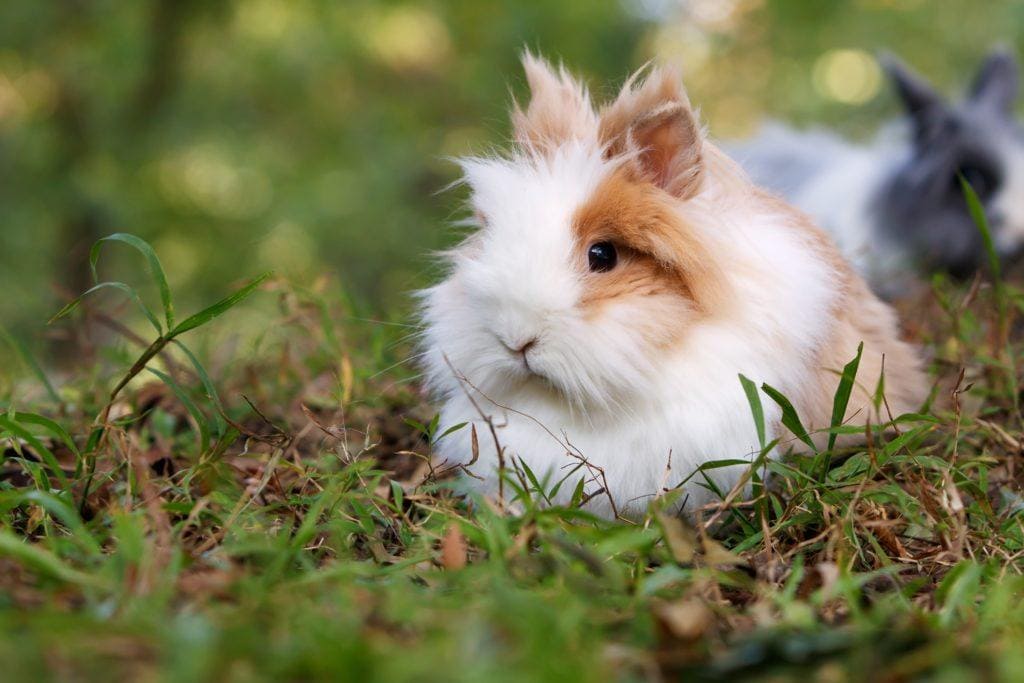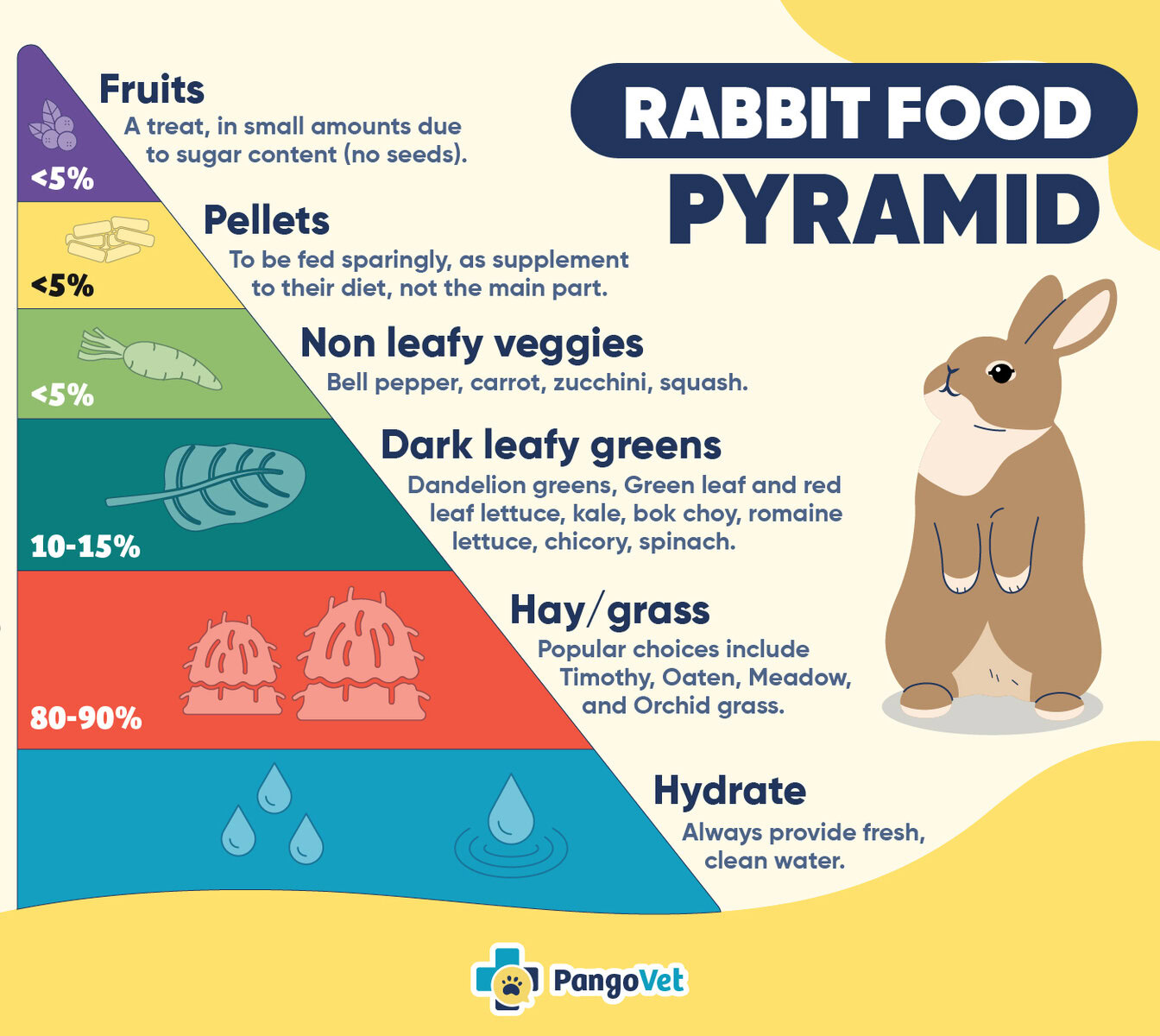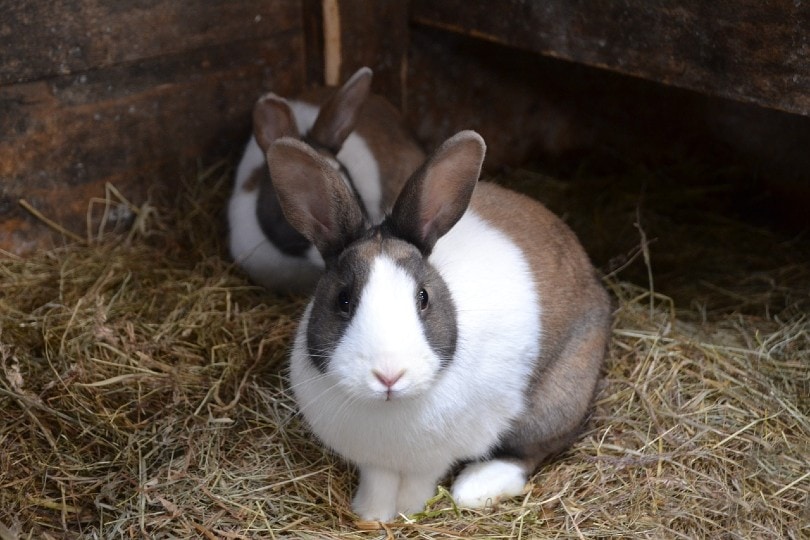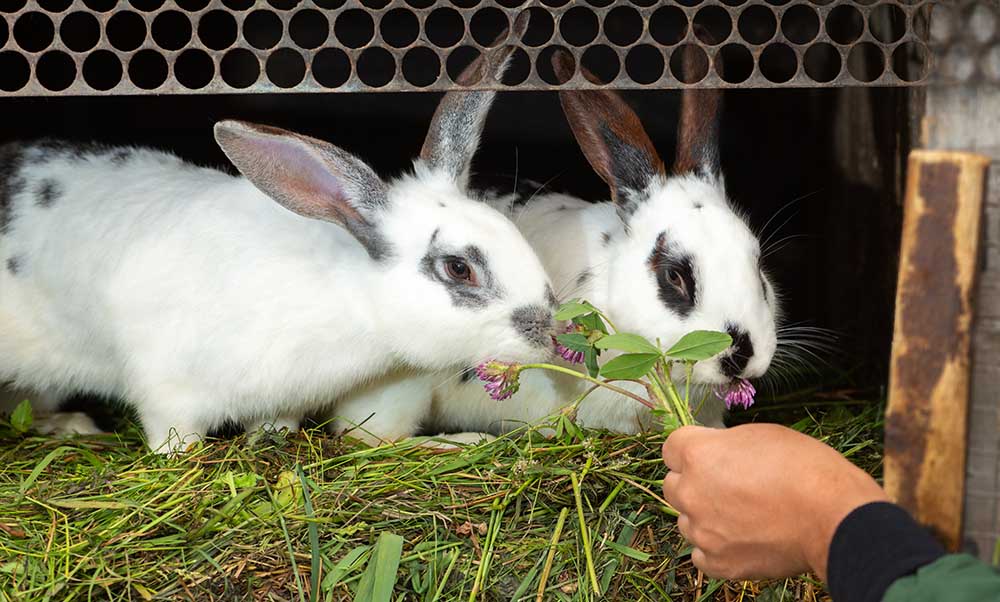VET APPROVED

The information is current and up-to-date in accordance with the latest veterinarian research.
Learn more »Click to Skip Ahead
We all want our pets to live long, healthy, happy lives. Whether we have a cat, dog, bird, rabbit, or other type of companions, we do everything we can to give them the best life possible.
One thing we always want to know when we bring a new pet into our family is how long we should expect to have with that animal. Pet rabbits generally live between 8 and 12 years.
Many factors contribute to a rabbit’s lifespan expectancy. Keep reading to learn more about what to expect for your pet rabbit and how you can ensure they live their best life!

Common Breeds of Pet Rabbits

The first factor that will contribute to your rabbit’s lifespan is its breed. Generally speaking, larger rabbit breeds have a shorter lifespan than smaller breeds.
There are over 50 different breeds of domestic rabbits in the world.
- Mixed Breed
- Holland Lop
- Lionhead
- Mini Lop
- Mini Rex
- Dutch
- Flemish Giant
- Netherland Dwarf
- English Angora
- Californian
Of these 10, the Flemish Giant is the largest and generally lives between 5 to 7 years. Smaller breeds, like the Mini Lop and Netherland Dwarf, can live from 10 to 12 years if properly cared for. Although it is rare, some pet rabbits have been reported to live for as many as 15 years.

Why Do Some Pet Rabbits Live Longer Than Others?
Along with the breed of rabbit you choose as a pet, many other factors will contribute to their lifespan. Some of these you can control just by making sure you are properly caring for your pet rabbit. Rabbits are just like cats and dogs in that they require good nutrition, exercise, veterinary care, and a safe habitat to thrive.
1. Exercise
Rabbits need plenty of exercise to keep them busy and prevent weight gain. Simple things that encourage exercise and exploration are tunnels, ramps, buckets, and boxes.
Giving your rabbit at least 3 to 4 hours every day outside of their cage to roam and explore in a safe place will help keep them healthy.
Most pet rabbits love toys, but can get bored with them quickly, so variety is the key! A bored rabbit is a destructive rabbit, so if you don’t want to have your pet chewing up your furniture or carpet, you need to keep them mentally stimulated.

2. Nutrition
Along with exercise, good nutrition will also extend your pet rabbit’s life. Like all pets, rabbits will gain weight if they are overfed. If they are not fed a varied diet, they risk nutritional deficiencies. There are several foods your pet rabbit needs for proper nutrition and others that can be added to their diet when needed.
- Vegetables – leafy greens, carrot tops, dandelion greens, zucchini, and others
- Hay – provides fiber; prevents dental disease; should make up the majority of their diet as they need to chew on it to keep their teeth from getting too long
- Rabbit pellets – only to supplement their core diet; avoid those containing nuts, corn, and seeds
- Treats – occasional treats are fine, just don’t give them too many; rabbits enjoy fruit as a treat
- Water – rabbits always need access to clean water

3. Habitat
The habitat in which your rabbit lives is also an important factor in their life expectancy. Rabbits should be kept indoors. They should have an enclosure or pen that is large enough for them to jump around and roam. Avoid wire bottom cages as they cause damage to their hocks. They should also have a clean, soft place to lie down and a separate place for food and water. In their enclosure, your rabbit needs to have a litter pan. You will need to clean out their enclosure and litter every day to prevent it from smelling and exposing your rabbit to harmful bacteria.
They should also get plenty of exercise time outside each day, but you should always monitor your rabbits closely when they are out of their enclosure. They should be kept safe from other pets, small children, and wild animals. Rabbits can also hop up your stairs but may have trouble getting down. You should keep them away from stairs to prevent falls and injuries.

4. Grooming and Physical Examinations
Lastly, you can help your pet rabbit maximize their life expectancy by getting them used to physical examinations. Monitor their teeth regularly to ensure they are getting naturally worn down and have a healthy appearance. Long-haired breeds will also need regular brushing to prevent hair ingestion.
5. Health
Even if your rabbit seems healthy, it’s good to be proactive by taking them to the veterinarian for annual check-ups. These visits will help monitor their overall health and alert you to any changes in your rabbit’s condition.
It is also recommended that you spay or neuter your rabbit by the time they are 6 months old. Female rabbits have very high incidences of fatal uterine and mammary gland cancers that often occur at a young age.


Final Thoughts
While most pet rabbits can be expected to live between 8 and 12 years, there are many things you can do to maximize their health and lifespan. By paying close attention to things like exercise, nutrition, habitat, and veterinary care, you can ensure you will have an adorable, long-eared pal for as long as possible!
See Also:
- How Long Does a Pet Lionhead Rabbit Live? Average Lifespan & Facts
- Why is My Parrot Sneezing? Here’s What You Need to Know!
Featured Image Credit by: IRINA ORLOVA, Shutterstock










